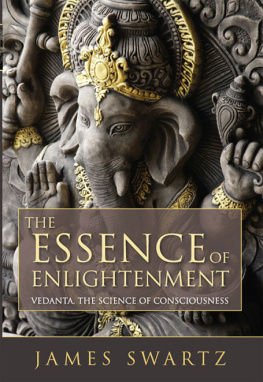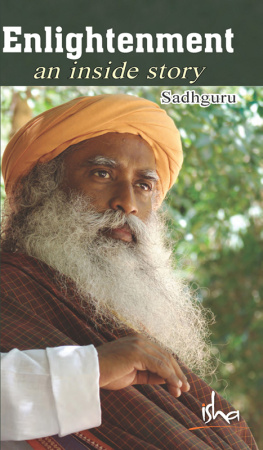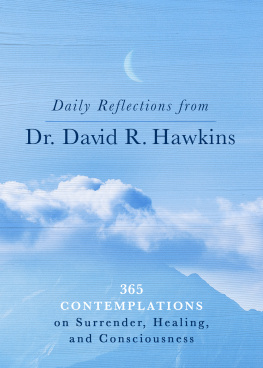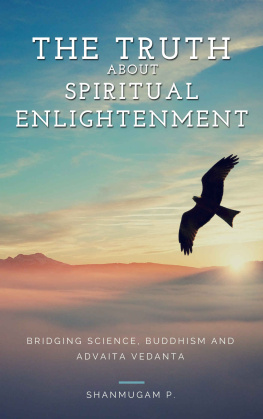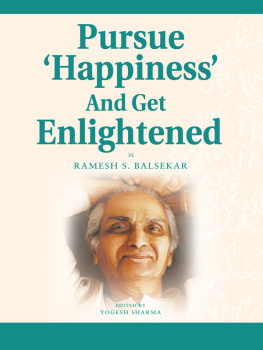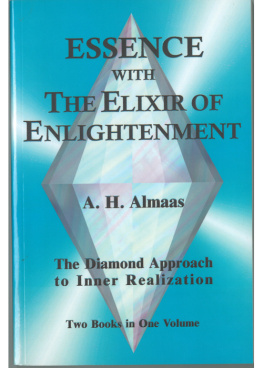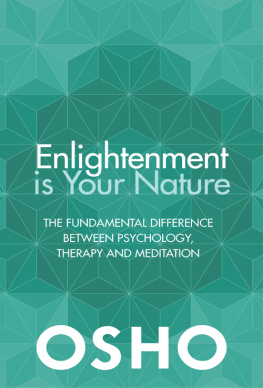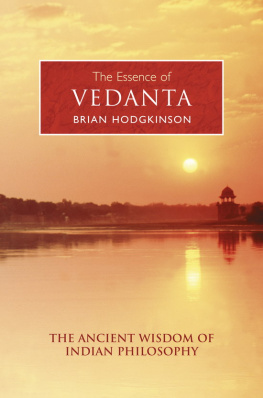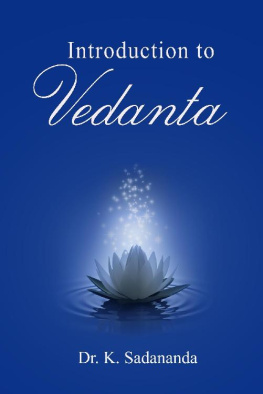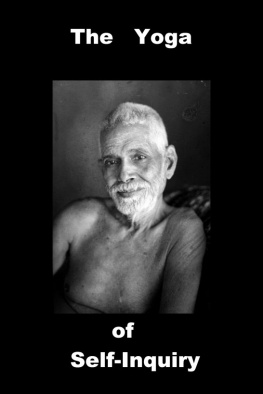THE ESSENCE OF
ENLIGHTENMENT
THE ESSENCE OF
ENLIGHTENMENT

Vedanta, the Science of Consciousness
James Swartz

First Sentient Publications edition 2014
Copyright 2014 by James Swartz
All rights reserved. This book, or parts thereof, may not be reproduced in any form without permission, except in the case of brief quotations embodied in critical articles and reviews.
A paperback original
Cover design by Kim Johansen, Black Dog Design
Book design by Timm Bryson
Library of Congress Cataloging-in-Publication Data
Swartz, James Bender.
The essence of enlightenment : Vedanta, the science of consciousness / James Swartz. First [edition].
pages cm
ISBN 978-1-59181-277-7
1. Vedanta. I. Title.
B132.V3S945 2014
181'.48dc23
2014022427
10 9 8 7 6 5 4 3 2 1
SENTIENT PUBLICATIONS
A Limited Liability Company
1113 Spruce Street
Boulder, CO 80302
www.sentientpublications.com
C ONTENTS
In the last forty-five years, previously uninformed Western cultures have steadily become aware of the idea of enlightenment. While the quest for enlightenment is hardly a mainstream preoccupation, a vibrant subculture of seekers has developed since the invasion by swamis, lamas and roshis of America in the late sixties. From the point of view of an individual life, forty-five years is a long time, but from the point of view of a culture capable of serving the needs of seekers of freedom, it is very short indeed. Cultures dedicated to the knowledge of material objects evolve relatively quickly. The development of a sophisticated scientific, psychological or literary culture takes much longera few hundred years, perhaps. But a comprehensive body of knowledge of the nature of consciousness and the psyche, and how both relate to the material world and the human need for freedom, takes much longer. Though the Wests long religious tradition has certain spiritual aspectsnon-dual thinkers appeared from time to timea spiritual culture centered around the idea of non-duality never evolved.
Material success came quickly after World War II and disgust with it followed soon after. It did not serve the needs of the soul. Because the culture offered no solutions, people had to look elsewhere. So Western young people in the tens of thousandsperhaps moreenthusiastically descended on Asia, particularly India, in search of fulfillment. Over the years they eagerly consumed exotic Hindu and Buddhist ideas and practices like a horde of hungry locusts. Though they only scratched the surface, they imagined they had mastered the enlightenment game and returned home laden with confidence that what they had acquired would transform their lives and save their country from materialism. Their attempt to integrate Eastern spirituality into the culture of their birth has created a vibrant subculture. But the culture of non-duality that is beginning to take shape here is still in its infancy, as is obvious to anyone who understands the history of enlightenment.
Consequently, the Western spiritual world is a strange hodgepodge of initially appealing, partially assimilated and conflicting, dual and non-dual notions and practices that quickly fade, leaving the heart hungry for more. Forty-five years ago my teacher, an Indian mahatma, told me that at the beginning of the twenty-first century the West would be ready for Vedanta, the granddaddy of all Asian spiritual cultures and a complete and perfected science of enlightenment teachings. I thought nothing of it at the time, but it seems he was prophetic. The reason is simple: Many seekers have worked diligently on themselves for years and have matured as human beings. Consequently, they are well prepared to understand the counterintuitive and radical message of Vedantato wit: appearances to the contrary notwithstanding, reality is non-dual consciousness. What this means and how it benefits human beings in their quest for freedom from limitation is the subject matter of this book.
In 2009 I wrote a book entitled How to Attain Enlightenment, which presented Vedanta to the Western world in clear, modern English. Vedanta never caught on in the West, either because people werent ready for it or because the idea of non-duality was saddled with the trappings of Hinduism. The ochre clad swamis with glowing eyes and strange names spoke HinglishHindi accented Englishand laced their teachings with unpronounceable Sanskrit words. More often than not it was presented as a Hindu philosophy, although it has nothing to do with Hinduism and is not a philosophy at all. It is the knowledge of reality and as such is beyond time and place, religions and philosophies. In any case it apparently didnt appeal to many Westerners until my book came out in 2009. Since then my hitherto simple, contemplative life has become a flurry of activity as I jet around the world teaching Vedanta.
I will resist the temptation to say that this is a completely different book. The core teachings are eternal. They were revealed several thousand years before the Christian era. Vedanta as a means of enlightenment evolved slowly since then as great minds contributed dispassionately to the teaching tradition, which reached perfection in the eighth century. Just as nobody is trying to invent a new wheel, no one can improve Vedanta, because it does what it purports to do: set us free of our sense of limitation. So the basic logic of this book is the basic logic of the first book because Vedanta is the knowledge of reality and reality never changes. However, it is not the same book. It is written in a different, perhaps more accessible, style and develops certain teachings introduced in the first book. It adds a chapter on the topic of values and the enlightened person. It discusses dharma and the essence of enlightenment in considerable detail, thoroughly explaining the relationship between consciousness, the individual and the total.
Like its predecessor, this book sufficiently demystifies the topic of enlightenment. Although it is inspirational, it is not just another vague inspirational read. It is written in a simple style that I believe will make the science of self-inquiry accessible to seekers and finders everywhere.
James Swartz

Imagine yourself in the springtime in a mountain valley. Many beautiful flowers are blooming. Pick one of each, bring them home and lay them on a table. Each has its own beauty, but if you arrange them into a bouquet, the total becomes more than the sum of its parts. Vedanta takes all our experiences and arranges them in a way that gives us a perfect appreciation of our true nature and purpose.
Many thingswonderful skyscrapers and bridges, cell phones and the internetare the result of humanitys collective knowledge. Similarly, our collective spiritual experience and knowledge has coalesced into a perfect bouquet of teachings that has the power to set us free. Nobody owns it because it belongs to everyone. This perfect bouquet, this most refined vehicle, is Vedanta, the knowledge that ends the search for lifes meaning.
The human heart will not rest until it understands who and what it is. Without the vision of non-duality, you will be forced to keep seeking. If you want to understand who you are and live free, you need to sign on to the logic as it unfolds in this book. If you cant accept the first teaching, you cannot benefit from the second. If you cant sign on to the second, the third will not make sense. Each teaching fits seamlessly into all the others because reality is one consciousness. Vedanta is its science. To get the most out of it you must be patient, because non-duality is challenging. Knowledge may come in a flash but it does not remain without constant exposure to the teachings. Incrementally, the vision of non-duality will coalesce in your mind. So read carefully. Never hurry. You will not be disappointed.
Next page
